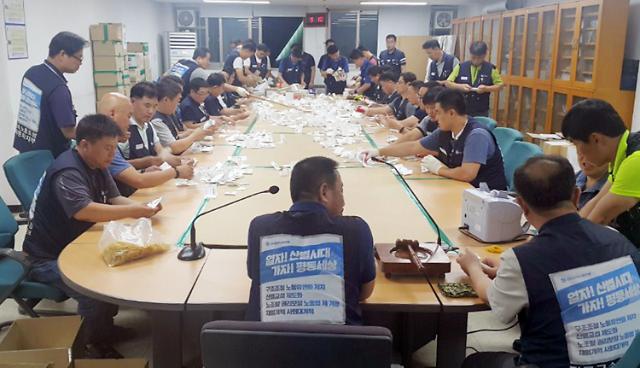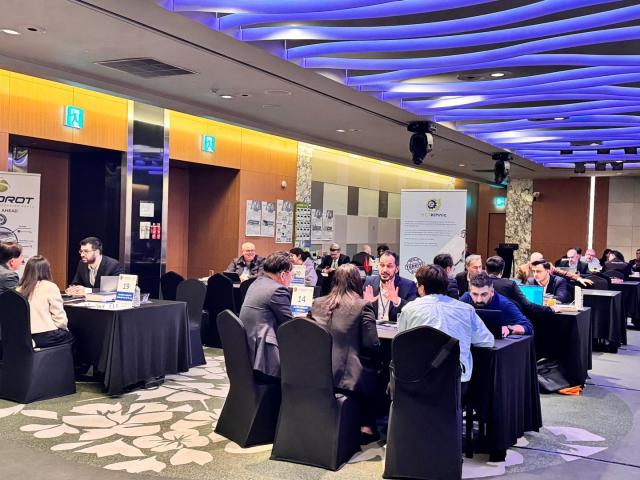
[Yonhap Photo]
SEOUL -- Workers at South Korea's top carmaker Hyundai Motor, known for their labor militancy, voted to support a strike proposed by union leaders for higher payment, shrugging off growing concerns about trade protectionism abroad and slow sales at home.
Hyundai Motor said that 44,782 workers of its 50,417-member union participated in a vote Monday with 65.6 percent of them supporting a proposed strike after wage negotiations broke down. Union leaders proposed a wage package including a 5.3 percent increase in basic monthly payment and bonuses worth 30 percent of net profit.
There are other demands related to allowances and working conditions. Union leaders also called for a 7.4 percent increase in monthly wages for temporary workers dispatched by contractors. Union leaders have yet to disclose a timetable for their action.
The most contentious issue is Hyundai's proposed 53 billion won ($47 million) investment in a joint venture with the Gwangju city government to assemble compact SUVs with one-liter engines under an original equipment manufacturing (OEM) contract.
Gwangju plans to build a 700 billion-won joint venture plant for completion by 2020. Along with tax and other benefits, the city government suggested workers would receive an annual salary of less than 40 million won, far lower than that of Hyundai workers.
Hyundai's union opposed the joint venture, insisting the auto group does not need extra production facilities. Hyundai and its affiliate Kia Motors together are capable of producing 9.68 million vehicles per year.
Frequent strikes, excessive demands and intervention in management have hurt the competitiveness of the world's fifth-largest auto group, contributing to low productivity. Workers at Hyundai and Kia are relatively well paid, along with good fringe benefits and welfare, but they always remain ungratified, struggling to get bigger over time and other one-time incentives.
In a message to shareholders in May, Hyundai Motor president Lee Won-hee warned the auto group is in crisis due to tough competition in the global market and challenges from carmakers in China and other emerging countries.
Last year, the group's combined sales hit a four-year low of 7.35 million units, falling far short of their goal. This year, the auto group set a modest goal of selling 7.5 million vehicles, citing an unfavorable business environment abroad.
The United States has threatened to impose tariffs on imported autos. Out of 2.53 million Korean vehicles sold abroad last year, 33 percent were shipped to the U.S. market, according to data compiled by the Korea Automobile Manufacturers Association. Hyundai and Kia run factories in Alabama and Georgia.




![[CES2024] Hyundai unveils eVTOL product concept for urban air transport services](https://image.ajunews.com/content/image/2024/01/10/20240110105521760482.jpg)